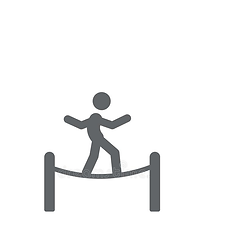

18-06-2025 Spotlight
Beeing a leader or a coworker is a constant cooperation / balancing act with others
In my experience one of the more important areas to address is the balance between feeling and logic,
in my vocabulary Heart and Mind
Heart and Mind Management provides Assessment, Coaching, Training, Workshops supporting in management and organisation effectiveness
We updated the homepage on 18-06-2025
I have recorded spoken presentations on the following subjects and launched them, and also updated the homepage

Competence Management 2025-06-09
The knowledge and the skill in the marketplace improves all the time!
- Personal Development
- Organisational Development

Personal Development
The knowledge and the skill in the marketplace improves all the time!
To keep up with that development, it is important to improve yourself to stay useful to the company in the long run
Organisational Development
1.Identify what Specific skills need to be improved:
- Determine the skills, knowledge, and behaviours required to
achieve organisational goals.
- Align with strategic objectives, job roles, and future needs.
2. Assess Existing Competencies
- Evaluate the current capabilities of employees through
assessments, feedback, or performance reviews.
- Identify gaps between existing and required competencies.
3. Analyse Gaps
- Compare current competencies with needed ones.
- Prioritise which gaps need to be addressed first based on impact
and urgency.
4. Plan and Develop
- Design learning and development initiatives (training, mentoring,
coaching, etc.).
- Implement succession planning and career development
strategies.
5. Apply and Monitor
- Apply competencies in real work scenarios.
- Monitor progress through KPIs, feedback, or performance results.
6. Evaluate and Improve
- Measure effectiveness of competence development initiatives.
- Use results to improve future competence management efforts.
How do you learn

(The picture is built on the results from Research of creative leadership)
The best results are achieved when they all work together

Competence/ Competency
There needs to be a balance of the two
Competences
- Competence
- Technical skills
- Necessary for all job holders
- Can be learnt from zero
- Learnt by practice
Competency
- Competencies
- Behaviours and skills
- Differentiate the Best from the Rest
- Can be developed/Improved
- Learnt by coaching

Competence Management
Personal development
- Develop your skills continuously to get to the top - or to remain
there
Organisational Development
- Assure that future needed skills match knowledge, and behaviours
required to achieve organisational goals.
Goal Oriented Teams 2025-06-16
1.Establish Clear, Shared Goals
- Use SMART goals (Specific, Measurable, Achievable, Relevant, Time-
bound).
- Ensure goals align with organisational priorities and team purpose.
- Make goals visible and regularly referenced in team activities.
2.Define Roles and Responsibilities
- Clarify who is doing what to avoid duplication or gaps.
- Use RACI charts (Responsible, Accountable, Consulted, Informed) if
needed.
- Empower team members with autonomy while maintaining
accountability.
3.Foster Team Alignment and Buy-In
- Involve the team in setting or refining goals to boost ownership.
- Ensure every member understands how their work contributes to the
overall goal.
- Regularly revisit goals to reinforce focus and motivation.
4.Enable Communication and Collaboration
- Hold regular check-ins, stand-ups, or sprint reviews.
- Use collaboration tools (like Asana, Trello, or MS Teams) for
transparency.
- Encourage open feedback and celebrate progress.
5.Track Progress and Measure Results
- Use KPIs or OKRs (Objectives and Key Results) to monitor
achievement.
- Set milestones and review them frequently.
- Share progress updates visibly and constructively.
6.Address Challenges and Adjust
- Identify blockers early and remove them quickly.
- Be flexible: pivot goals if priorities shift or data suggests a new
direction.
- Encourage a growth mindset: failures = learning.
7.Reward and Recognise
- Celebrate achievements and individual contributions.
- Acknowledge both results and behaviours that reflect team values.


Goal Oriented Teams
Means a Target focused Leadership
Targets are to be SMART (Specific Measurable Attainable
Realistic and Time-limited)
To be able to define good targets one needs to have
- a good knowledge of the organisation
- a realistic view of your organisation in its environment
- the risk level that is traditionally accepted in the organisation
- the overall targets of the organisation
In a Target-oriented organisation you often see a breakdown of targets, a target hierarchy cascaded down in the organisation.

Everone in the team needs to fully understand the targets in What Way and How to be reached
To achieve this, the communication of targets needs to be:
- Clear (SMART)
- Transparent
- Ethical
Communication and explaning the targets can help to
- Motivate the employees
- Point the direction (where we are aiming to go)
- Understand why a specific action is taken
- Develop a common vision of the final result
- Optimise work plans
- Identify required and available resources
- Achieve commitment
- Evaluate alternative solutions
- Relieve stress
- Make better use of the time
Planned are 4 workshops during June 2025
No cost for participating
No limit in numbers attending the meetings

Cross- Functional Work
14 /7 2025
09.00-09.30
17.00-17.30

Resource Flexibility
21/7 2025
09.00-09.30
17.00-17.30
Menues


Main Menu
Building Block Menu

Training Menu


Assessment Menu
Coaching Menu

Company Philosophy Menu


Workshop Menu

SPOTLIGHT on Heart and Mind menu


A Human Centered Organisation
Core Human Values
Moral Ambition


















